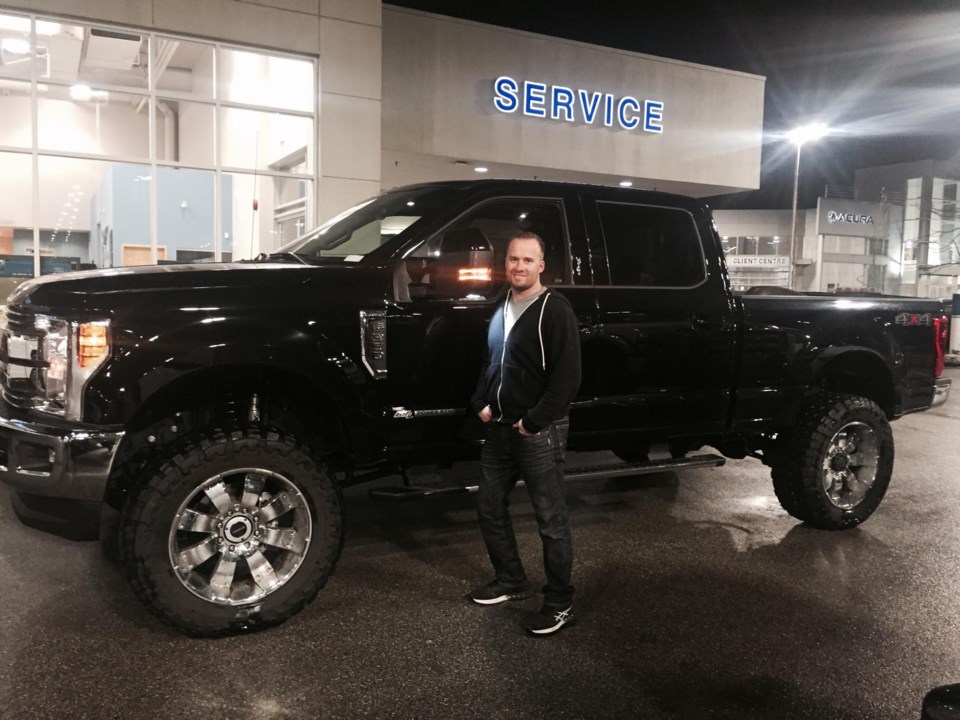Editor’s Note: Erin, a woman with disabilities who was interviewed for this story, asked to only use her first name because she fears more verbal abuse from the community.
Two Squamish residents with disabilities are now reluctant to use local disabled parking bays for fear of further verbal attacks by members of the local community.
Erin, mom of two, has fibromyalgia and systemic lupus erythematosus (an autoimmune disease in which the immune system attacks the body’s tissues and vital organs).
“I still look like a normal 25-year-old,” she said, but explained that she can be sore, stiff and in a great deal of pain.
Despite the pain, she’s wary of using local disabled parking bays because of the abuse she has received.
“I had my youngest with me one day and someone drove by yelling, ‘My dog is more handicapped than you.’ She asked if they were talking to me and I said ‘no’, which was a lie, but I don’t want her thinking we’re getting yelled at,” she said.
Another time, at a local grocery store, she started receiving comments from a couple waiting for a taxi.
“They were making comments on my vehicle and how I must have my dead Grandma’s pass; that I was abusing the system and was a fake and a phoney,” she explained.
As she entered the store, she burst into tears. Parking permits for people with disabilities are only issued based on the recommendation of a physician. Although Erin always offers to show hers to observers, they rarely care to see it or apologise for their mistake.
Unless you’re elderly, look weak or are in a physical wheelchair, she explained, people think there’s no reason you should be parking there.
“You can’t see everything that’s going on in someone’s body… just because I don’t have tubes hanging out or don’t use a wheelchair doesn’t mean I don’t have things going on.”
Such invisible disabilities are explained on the Rick Hansen website as disabilities that aren’t immediately noticeable. They’re just as life-affecting as a visible one, but not always talked about or understood.
Because they’re not obvious to spot, they may be overlooked and misunderstood. Which can, unfortunately, lead to discrimination or exclusion of those with an invisible disability.
Donna Bent, manager of community living at Sea to Sky Community Services, added, “For instance, some people with visual or auditory disabilities who do not wear glasses or hearing aids, or discreet hearing aids, may not be obviously disabled. I feel that we should extend grace whenever and wherever possible.”
Steve’s story
Steve Howe was just 22 years old when he was injured while building the Sea to Sky highway for the Olympics.
“I was working with an excavator to fell some trees. Everything was going good but, before I could blink an eye, the bucket came flying towards me. I tried to jump out of the way but it was faster than me. The bucket came down and impaled me in the pelvis and dragged me the full length of the machine. As the machine was dragging me down the side of the mountain, I started to feel my legs separate from my body.”
He was flown to Vancouver General Hospital where he underwent two life-saving surgeries followed by rebuilding surgeries on his wounds, pelvis and bones.
When he awoke from his coma seven weeks later he was unsure if he’d ever walk again.
He’s had 78 surgeries in total and progressed from using a wheelchair to crutches, and is now able to walk a block. One leg though, he explained, doesn’t work.
Despite his incredible journey, he still receives verbal abuse from locals, most of which, he said, is the direct result of the truck he drives.
“I don’t care what people think. I’m going to drive what makes me happy.”
But because of it, he is judged.
“I’ve had notes stuck to my truck that read, ‘You obviously don’t have a physical disability but a mental one.’”
And adds, “People will say, ‘Oh, you’re a real tough man driving that truck and parking in the handicapped spot. If I ever catch you again…’ I get these threats all the time.”
People assume he ought to be driving a minivan.
“If anyone tries to go outside that realm you’re targeted,” he said.
“My wife will not drive with me if I park in a disabled spot because she gets yelled at too. It’s pretty insane.
“Part of me is happy that there are people out there that are trying to help the disabled population by making sure that able-bodied people aren’t taking those spots. The other part of me says shame on these people for judging a book by it’s cover.”
Education about invisible disabilities, said Erin, might help. In the meantime, she tries to kill the comments with kindness.
“I always wonder, though, if today is going to be another day where someone is going to ruin my day in front of my kids.”
For more information about parking permits for people with disabilities, visit sparc.bc.ca.




